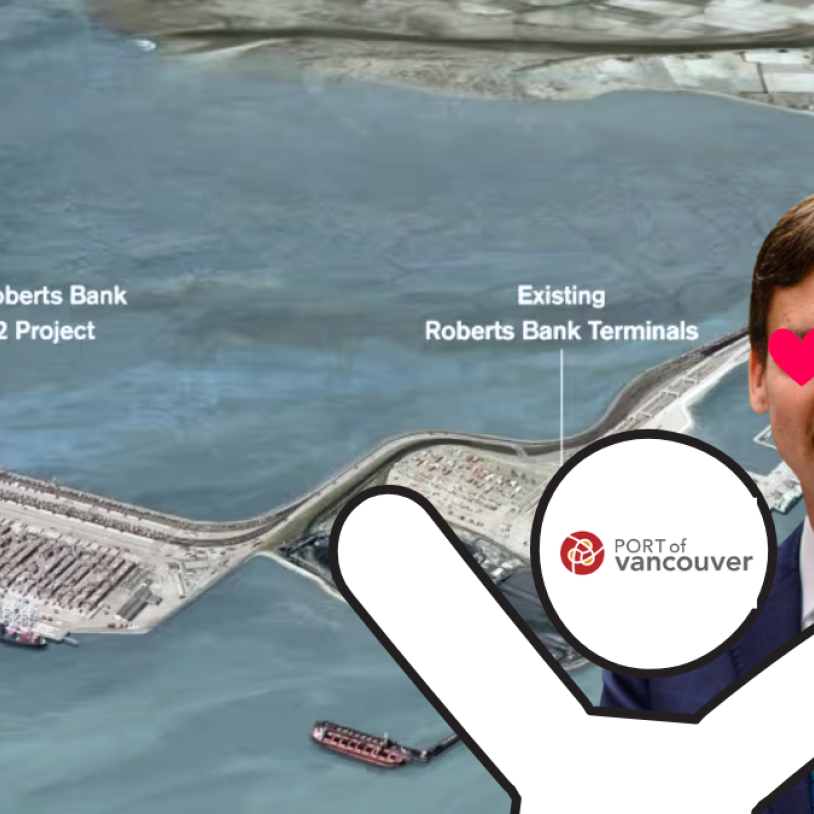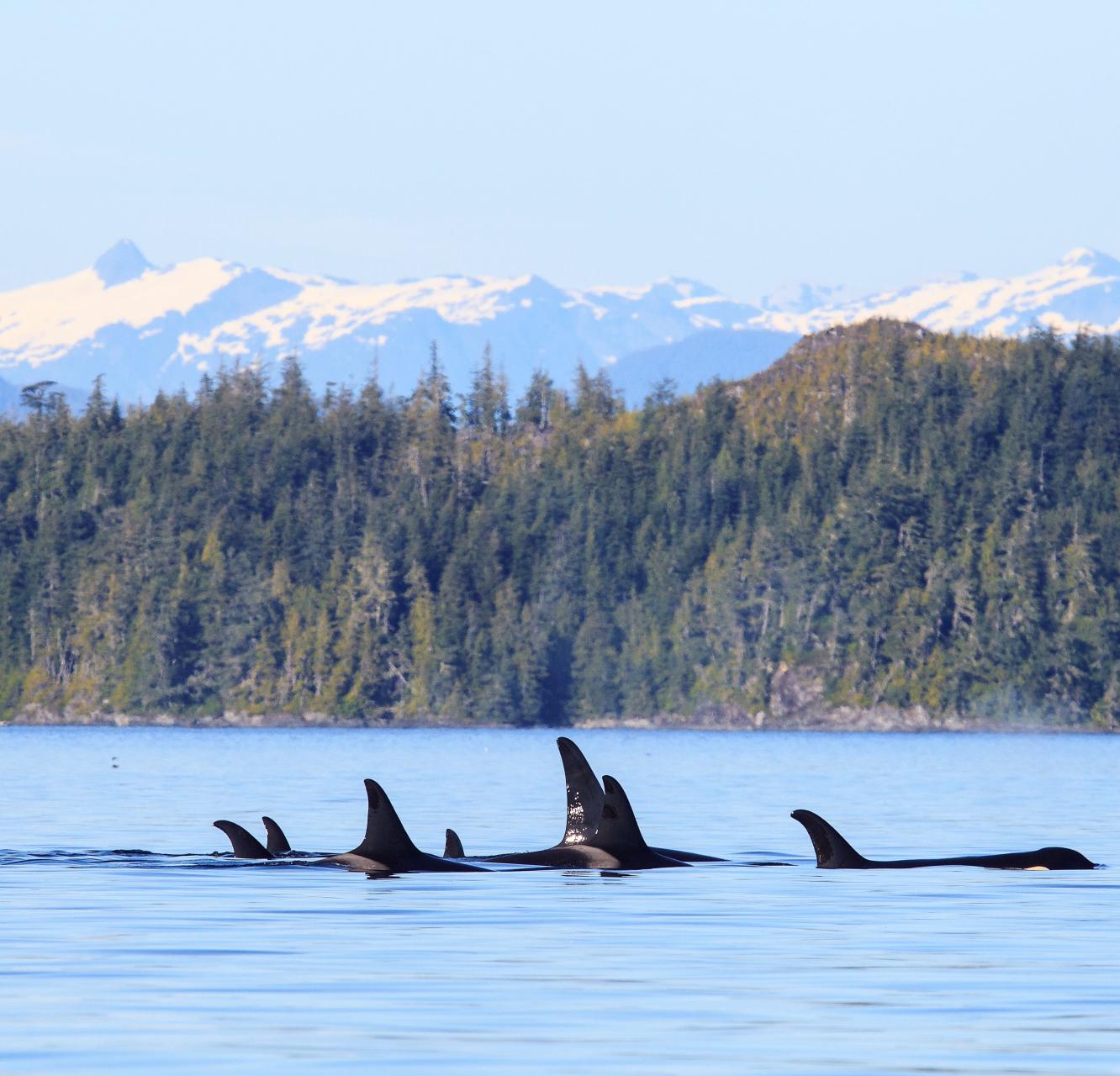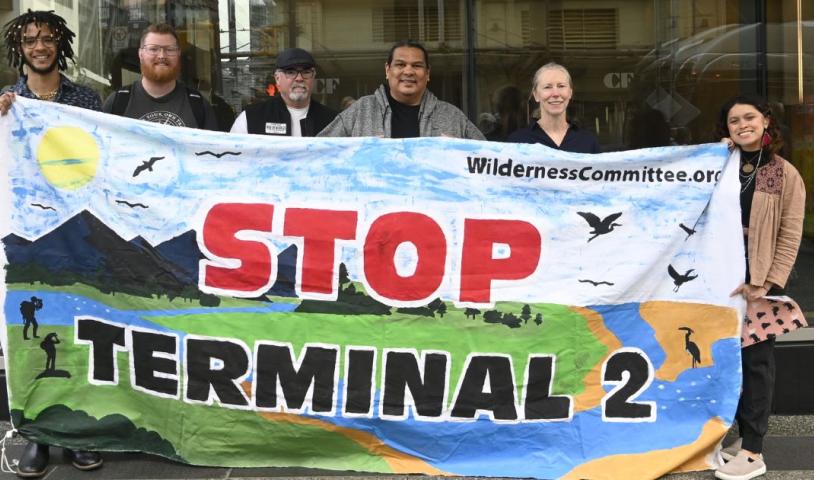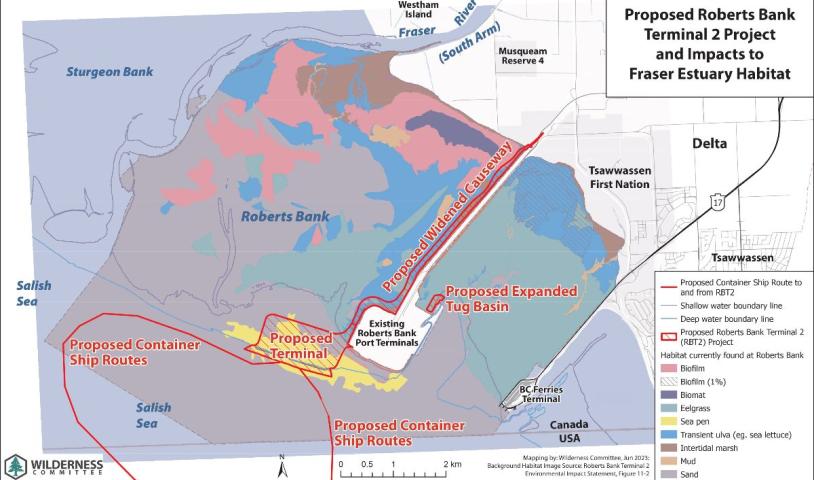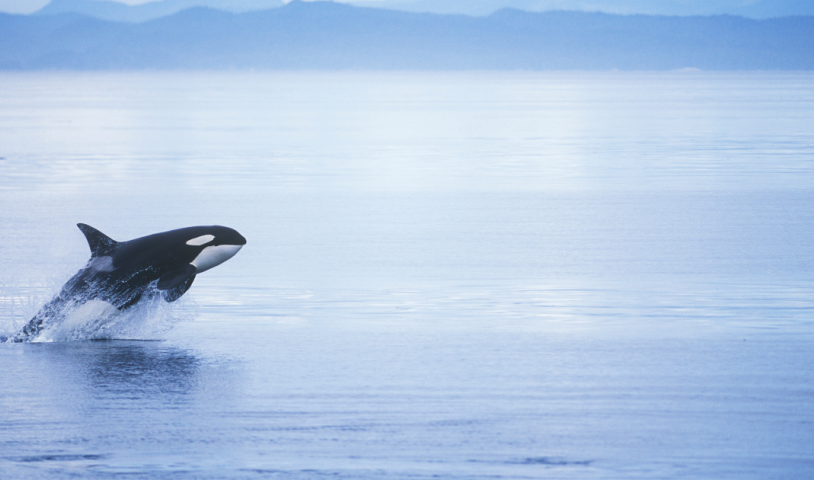Federal government greenlights Roberts Bank Terminal 2 project despite significant harm to environment and southern resident killer whales
Thursday, April 20, 2023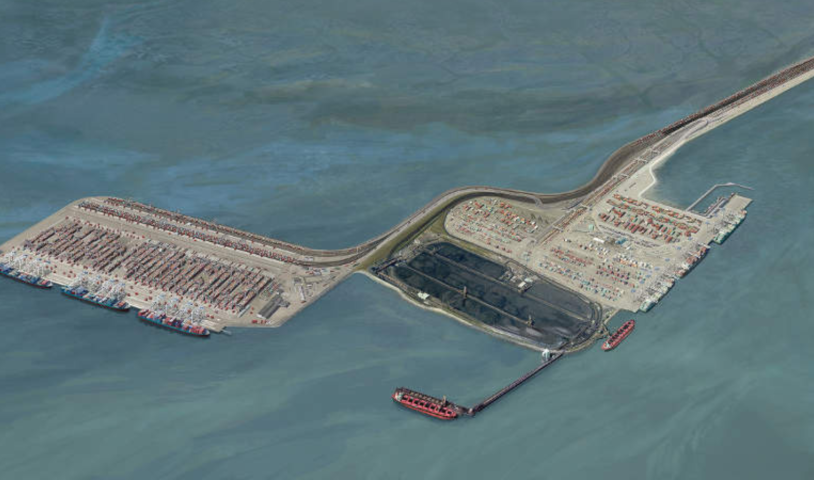
A previous federal environmental review panel concluded the project would cause adverse environmental effects, but corporate profits prevail
VANCOUVER / UNCEDED xʷməθkʷəy̓əm, Sḵwx̱wú7mesh AND səlilwətaɬ TERRITORIES — The government of Canada approved the Roberts Bank Terminal 2 Project in the Fraser River Estuary today, despite an independent environmental review panel determination the project is likely to have significant adverse environmental effects, including harmful impacts on at-risk species like southern resident killer whales and chinook salmon.
“The panel determination should have signified the end for this harmful and shortsighted project by the Port of Vancouver,” said Conservation and Policy Campaigner Charlotte Dawe. “Instead, we’re seeing what could be a death sentence for the southern resident killer whales. The Fraser Estuary is an ecological jewel being sacrificed for corporate profits.”
The Impact Assessment Agency puts all of the time and resources into listening to science-based experts, First Nations and the public, only for the government to ignore the risks as “justified.” The report found there would be negative impacts on wetlands, barn owls, Dungeness crab, chinook salmon and southern resident killer whales. It also highlighted many First Nation traditional territories that overlap with the project and outlined risks to current use and cultural heritage resources. The report further identified public health will be at risk during the project’s operation from exposure to nitrogen dioxide and other respiratory irritants.
“A few years ago, all of us watched with heavy hearts as the southern residents struggled to raise a new calf, Scarlet. The world watched as she slowly starved to death because of vessel traffic noise and insufficient salmon," said Dawe. "Now the federal government is handing the rest of the pod a death sentence with the Roberts Bank Terminal 2 project.”
This decision is at odds with the federal government’s pledge at the 2022 United Nations Biodiversity Conference (COP15), where Environment Minister Steven Guilbeault pressed other governments to halt biodiversity loss. The Terminal 2 expansion project is the opposite of COP15’s aim to halt and reverse biodiversity loss by the end of the decade.
The project, taking place in Roberts Bank, is a proposed new marine container terminal where large vessels will receive and ship container goods. The approved expansion will double the capacity of the existing Port of Vancouver and Westshore facility, near Delta, B.C., for shipments. It proposes widening an existing causeway, expanding an existing tug basin and intensifying vessel traffic to and from the terminal. Construction will place further stress on the Fraser Estuary, which has already lost more than 70 per cent of its floodplain habitat.
The area is an ecologically sensitive and productive coastal ecosystem. The ecosystem is important for migratory birds, is a migration route for some of the largest salmon runs in the world and is critical habitat for endangered southern resident killer whales.
The federal government has justified this approval by touting 370 legally binding conditions to protect the environment. Including condition 3.4.1.1, “regularly sweeping any paved surface located within the Designated Project Area,” and condition 8.1.5 (under section for marine mammals), “conduct vibratory hammer and impact pile driving only on weekdays and during daytime hours.”
It also points to socioeconomic benefits of construction of the new port. At the same time, the International Longshore & Warehouse Union Canada has also raised concerns about Terminal 2’s use of automation and the job losses that would cause.
Wilderness Committee and other environmental organizations and their scientific experts, represented by Ecojustice, participated in the Impact Assessment Agency of Canada environmental assessment arguing the project will result in significant adverse environmental effects on salmon and southern resident killer whales.
–30–
For more information, please contact:
Charlotte Dawe | Conservation and Policy Campaigner
778-903-3992, charlotte@wildernesscommittee.org
